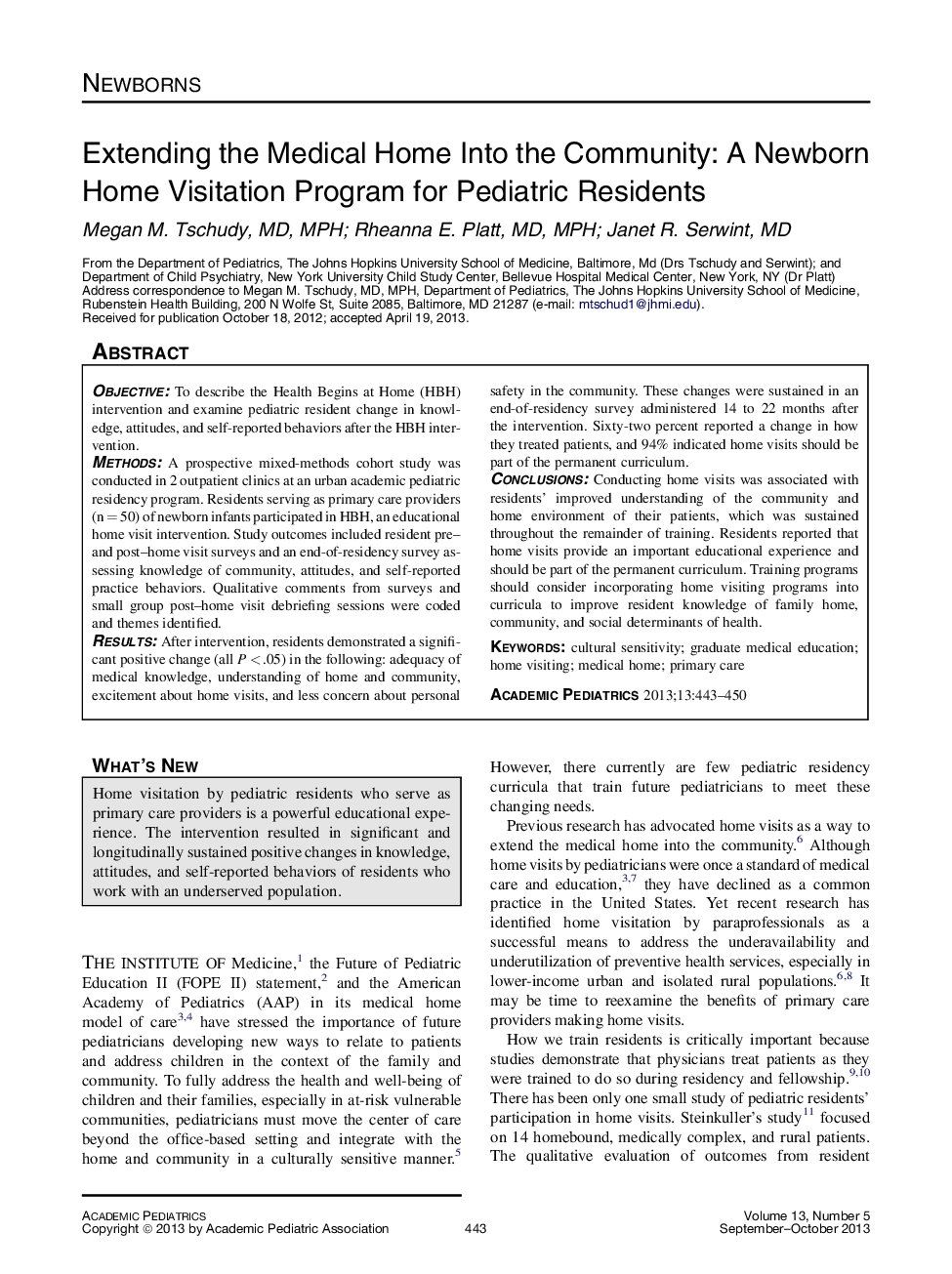| Article ID | Journal | Published Year | Pages | File Type |
|---|---|---|---|---|
| 4139786 | Academic Pediatrics | 2013 | 8 Pages |
ObjectiveTo describe the Health Begins at Home (HBH) intervention and examine pediatric resident change in knowledge, attitudes, and self-reported behaviors after the HBH intervention.MethodsA prospective mixed-methods cohort study was conducted in 2 outpatient clinics at an urban academic pediatric residency program. Residents serving as primary care providers (n = 50) of newborn infants participated in HBH, an educational home visit intervention. Study outcomes included resident pre– and post–home visit surveys and an end-of-residency survey assessing knowledge of community, attitudes, and self-reported practice behaviors. Qualitative comments from surveys and small group post–home visit debriefing sessions were coded and themes identified.ResultsAfter intervention, residents demonstrated a significant positive change (all P < .05) in the following: adequacy of medical knowledge, understanding of home and community, excitement about home visits, and less concern about personal safety in the community. These changes were sustained in an end-of-residency survey administered 14 to 22 months after the intervention. Sixty-two percent reported a change in how they treated patients, and 94% indicated home visits should be part of the permanent curriculum.ConclusionsConducting home visits was associated with residents’ improved understanding of the community and home environment of their patients, which was sustained throughout the remainder of training. Residents reported that home visits provide an important educational experience and should be part of the permanent curriculum. Training programs should consider incorporating home visiting programs into curricula to improve resident knowledge of family home, community, and social determinants of health.
